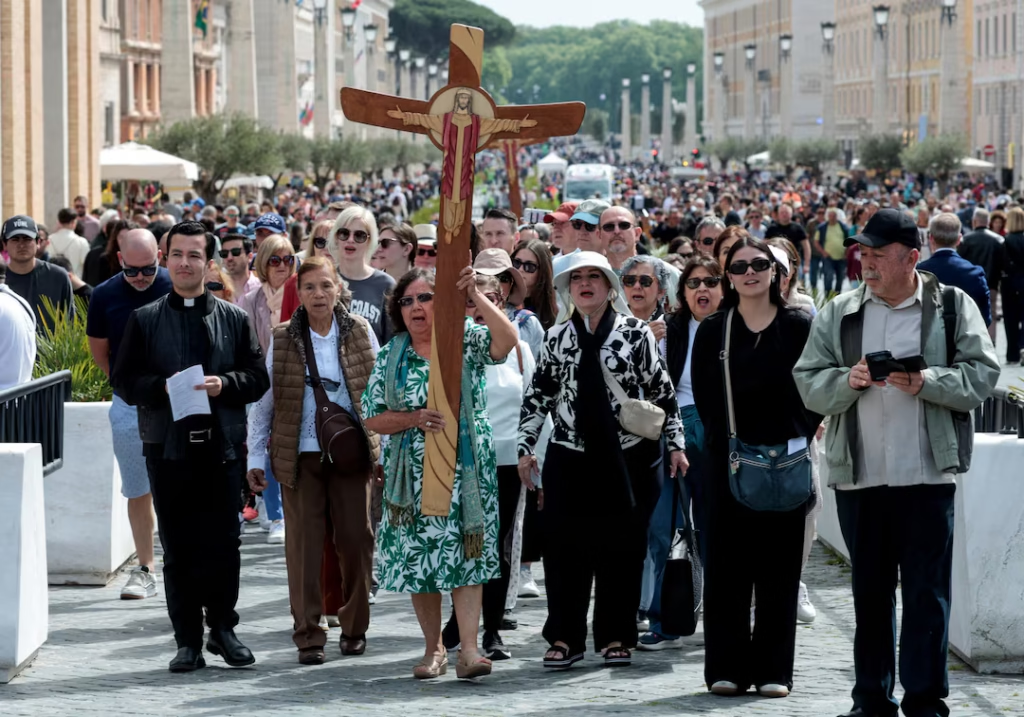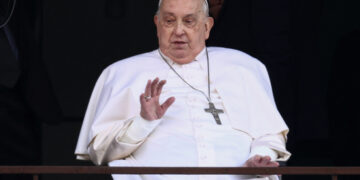Pope Francis, the beloved 88-year-old spiritual leader of more than a billion Catholics worldwide, has passed away. Renowned for his unwavering commitment to peace, compassion, and social justice, his passing marks the end of an era and the beginning of a lasting legacy that will continue to inspire generations across the globe.
In a solemn announcement made via video statement on Monday, the Vatican confirmed the passing of Pope Francis at the age of 88. Born Jorge Mario Bergoglio in Argentina, Pope Francis made history in 2013 by becoming the first Latin American and the first Jesuit to lead the Roman Catholic Church.
Throughout his papacy, Pope Francis was known for his emphasis on humility, social justice, and outreach to marginalized communities. His leadership marked a significant shift in tone and priorities within the Church, focusing on compassion, environmental stewardship, and interfaith dialogue.
Pope Francis Returns to the House of the Father, Announces Vatican
Vatican City – In a solemn statement released early this morning, Cardinal Kevin Farrell confirmed that Pope Francis has “returned to the house of the Father.” The announcement was made at 7:35 AM local time (0535 GMT) through the Vatican’s official Telegram channel.
Cardinal Farrell expressed the Church’s deep sorrow and reverence, stating: “This morning at 7:35 am (0535 GMT), the Bishop of Rome, Francis, returned to the home of the Father.”
The Vatican has not yet released further details regarding the circumstances. Tributes and prayers have begun to pour in from around the world as millions mourn the loss of the spiritual leader.

Pope Francis Calls for Freedom of Thought and Tolerance in Easter Address
Vatican City, Sunday — In a powerful Easter Sunday message, Pope Francis emphasized the importance of freedom of thought, religion, and expression, calling for greater tolerance and mutual respect around the world.
Speaking from the balcony of St. Peter’s Basilica, the Pope greeted a crowd of over 35,000 people gathered in the square below. However, due to health concerns, he entrusted the delivery of his traditional “Urbi et Orbi” (“To the City and the World”) benediction to an aide.
“There can be no peace without freedom of religion, freedom of thought, freedom of expression and respect for the views of others,” the Pope’s message declared.
His address also highlighted growing global concerns, including the rise of anti-Semitism and the ongoing humanitarian crisis in Gaza, which he described as “dramatic and deplorable.”
Pope Francis’s Easter message served as a solemn reminder of the need for unity, compassion, and the protection of fundamental human rights in times of division and conflict.
Pope Francis: A Legacy of Humility, Compassion, and Advocacy for the Poor
Pope Francis, widely admired for his humble nature and unwavering compassion for the underprivileged, has left an indelible mark on the Catholic Church and the world. Elected in 2013 following the resignation of Pope Benedict XVI, he ushered in a new era for the papacy—one marked by simplicity, accessibility, and deep social concern.
Often referred to as “the pope of the slums,” Pope Francis has remained a steadfast advocate for the poor and marginalized. From his early ministry in Argentina to his global mission as pontiff, he has consistently prioritized the voices of the forgotten. His regular visits to impoverished communities and outspoken support for social justice reflect his belief in the Church’s role as a sanctuary for the vulnerable and a force for change in a troubled world.
Pope Francis’ legacy continues to inspire millions, serving as a reminder of the power of faith, empathy, and inclusive leadership in today’s society.
A Pope of Inclusion: What’s Next for the Vatican?
He gained global attention for embracing migrants, LGBTQ Catholics, and others traditionally marginalized by the Church, leaving a legacy of compassion and inclusion.
Now, all eyes turn to the future of the Vatican. When a pope passes away or steps down, the responsibility of choosing the next leader of the Catholic Church falls to the College of Cardinals — the highest-ranking clergy from around the world. These cardinals gather in Rome for a secretive and solemn process known as the conclave, where they elect the next pope who will shape the Church’s direction in the years to come.
Pope Francis Discharged from Hospital After Pneumonia Treatment; Misses Key Holy Week Events
VATICAN CITY — Pope Francis was officially discharged from the hospital on March 23, following a five-week stay for treatment related to pneumonia. This marks one of the most serious health episodes for the pontiff since the beginning of his papacy in 2013.
Due to his illness, Pope Francis was notably absent from several major Holy Week celebrations for the first time during his tenure. He missed the traditional Stations of the Cross held at the Colosseum on Good Friday, as well as the Easter Vigil at Saint Peter’s Basilica. In his absence, cardinals were appointed to lead and officiate the services.
Pope Francis, who hails from Argentina, holds the historic distinction of being the first pope from the Americas. He also broke with longstanding tradition by choosing to reside outside the ornate Apostolic Palace within the Vatican. Instead, he has lived in the more modest Casa Santa Marta guesthouse since his election.
In the event of a pope’s passing, the conclave—the gathering of cardinals responsible for electing a new pope—typically begins 15 to 20 days later. This gap allows time for official mourning and for cardinals from around the world to arrive in Rome. According to the United States Conference of Catholic Bishops, the conclave is held in the iconic Sistine Chapel within Vatican City.
Since his election in 2013, Pope Francis has been known for his tireless dedication and relentless pace, rarely—if ever—taking a break. Now in his advanced years, the Pope continues to follow a demanding schedule, despite repeated advice from doctors urging him to slow down and take time off. Remarkably, he has consistently refused to scale back his commitments or take holidays, demonstrating unwavering devotion to his responsibilities as the leader of the Catholic Church.
Read Also
Language Clash in Bengaluru: Auto Anna vs Delhi Guy Sparks Debate on Linguistic Harmony 2025















 Categories
Categories









